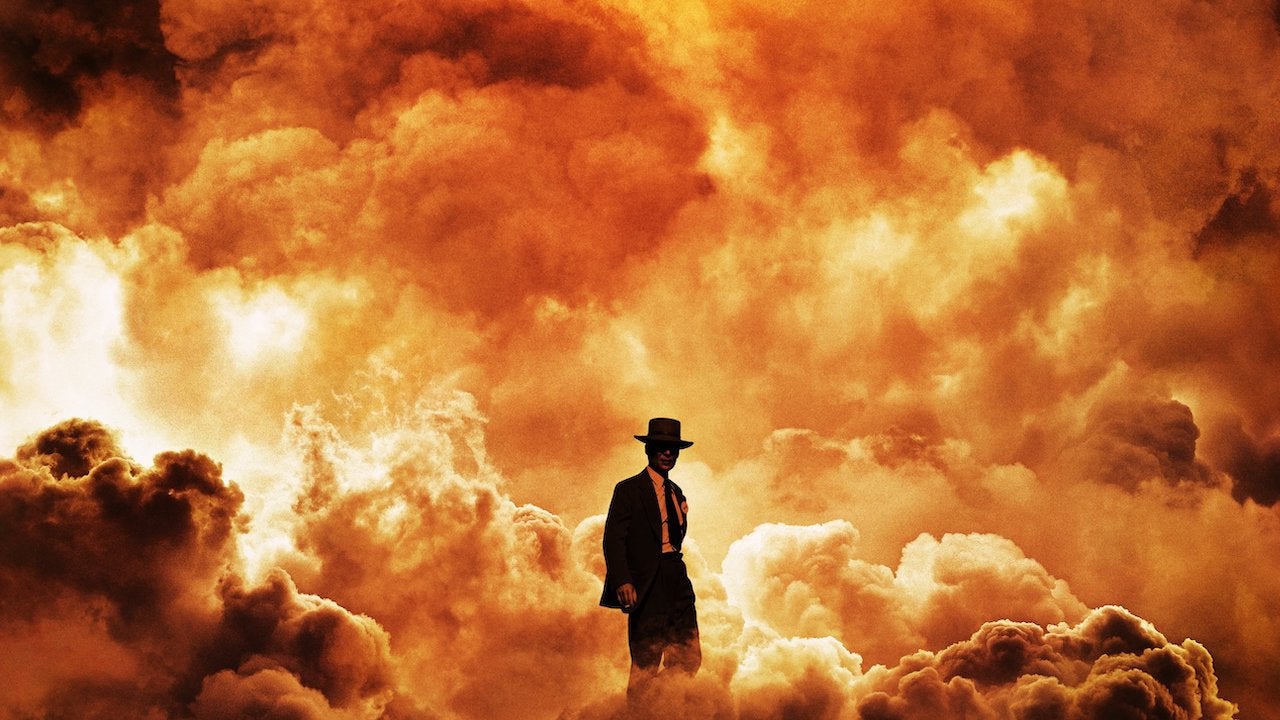Oppenheimer: the complicated man, the problematic myth, the infamous legend
Oppenheimer: He's just Ken?
Is it fair to say that J. Robert Oppenheimer was just another guy? Obviously he is (in)famous for his instrumental role in the creation and deployment of the atomic bomb by the USA during the Second World War, but in Christopher Nolan’s film what we really get to see is a man with an extraordinary talent who is drawn in by the power he sees in the ability to “become death, the destroyer of worlds.” It’s an unbelievably narcissistic statement to make, and although you probably have to admit his work did result in him becoming something close to that level of power, how ethical is it for us to celebrate the legacy of a man who was responsible for such unfathomable human losses?
The biopic as a genre itself tries to bring the audience closer to a particular public figure and dispel some of the mystery and mythology around them. And it seems this film has come at an interesting time for the biopic, released between two Elvis Presley biopics (with very different styles and intentions), not long after the highly debated Marilyn Monroe and Princess Diana biopics, Blonde and Spencer. Modern audiences love to be nosy about the lives of real people - celebrities - even if the stories they’re told are largely fictionalised versions.
Biopics are still interesting cultural and historical artefacts, showing us how people are remembered, how their legacies are told, what makes it onto the history books, and what might be forgotten. And it’s also through Oppenheimer that we’re given access to other public figures like Albert Einstein, alongside people important to Oppenheimer, like his wife, Kitty. Oppenheimer uses one man as a frame on which are layered the various interconnected characters in Oppenheimer’s life, and their relationships with him and each other.
To be fair to it, Nolan’s Oppenheimer doesn’t entirely deify the man, and is aware of how problematic he was in his life and legacy. In including the darker, more morally dubious parts of Oppenheimer’s life choices and character, I think the film serves to humanise him more in this way than if they tried to hide those aspects of his life and character. This is, however, a fine line to walk. Does humanising Oppenheimer by presenting the bad with the brilliant serve to deconstruct or bolster the God-complex he’s got going on?
It was a specific choice for the title of the film to be simply Oppenheimer’s name rather than copying the title of the acclaimed 2005 biography The American Prometheus, by Kai Bird and Martin J. Sherwin. I think that decision serves as a reminder to the audience that whilst Oppenheimer was undoubtedly a brilliant and world-famous physicist, he is still only human. The American Prometheus being the film’s title might have tipped the scales towards encouraging audiences to understand Oppenheimer as more a god than a human man, and how problematic might that have become? (For anyone who knows a thing or two about the Prometheus myth, in fairness Prometheus is not the most narcissistic god Bird and Sherwin might have attributed to Oppenheimer, but still, there are issues there.)
Seeing the full scope of Oppenheimer’s career and his work on the atomic bomb on screen is, I think, necessary for us to appreciate the development of Oppenheimer in his interpersonal relationships, and how those relationships (professional or otherwise) influenced the decisions he later made in relation to the use of the atomic bomb. That’s why the second half of the film was so important: it would’ve been wrong to end the story with the successful test detonation, because that would’ve suggested the fallout from that scientific breakthrough had no consequences, when of course the consequences were shockingly immense and utterly devastating. You could produce entire films on the geopolitical and biochemical consequences of the use of the atomic bomb in the Second World War, and indeed people already have, but to watch the fallout of those events through the very narrow scope of one man’s life is an entirely different beast.
Oppenheimer, more clearly in the second half of the film but certainly throughout, is very much at the mercy of the court of public opinion, and that court definitely is not restricted only to the film’s audiences. There’s no denying that Oppenheimer’s place in the history books is highly contentious and unsettling, but this film captures that contention in interesting stylistic ways. Audiences are, naturally, placed in a position where they are observers, given as full a picture as possible (and here we have Nolan’s use of colour shots against black-and-white shots to thank), trying to balance subjective and “objective” narratives.
Could we then argue that Nolan is giving modern audiences a new opportunity to assess the life and legacy of Oppenheimer, with the privilege of hindsight, through that elusive medium of film art? Is film even an appropriate medium for us to assess history and historical figures? Nolan might have attempted to provide objective and subjective perspectives on events throughout the film, but ultimately, Oppenheimer remains an artistic rendition of history and biography, with its own fictionalisations, subjectivities and inaccuracies.




Comments
Post a Comment